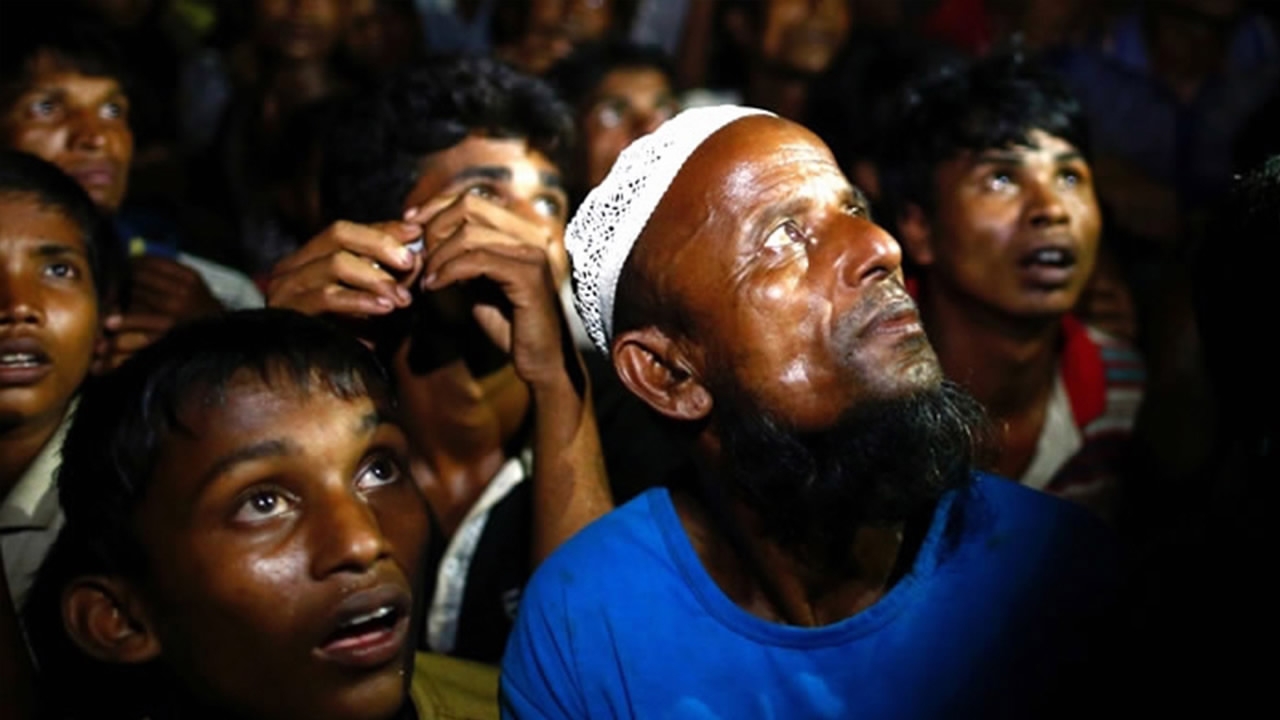
Politics
08:33, 14-Sep-2017
Myanmar violence unnerves the UN
CGTN

The UN Security Council expressed concern over the violence in Myanmar as the conflict in the country’s Rakhine state triggers another migration crisis.
The military campaign amounted to the ethnic cleansing of Rohingya Muslims, said UN chief Antonio Guterres as the UN Security Council broke its weeks-long silence on the crisis in Myanmar and called for an end to the violence on Wednesday.
Following a closed-door meeting, the 15-member council expressed concern about excessive force during security operations in Rakhine State and called for "immediate steps" to end the violence. It was the first time the council agreed on a united response to the crisis sparked by a military operation that followed attacks by Rohingya militants late last month.

Some 380,000 Rohingya people have fled across the border into neighboring Bangladesh and there have been growing appeals for Myanmar's leader Aung San Suu Kyi to speak out in defense of the Rohingya.
Suu Kyi's spokesman earlier said the Nobel laureate and long-time human rights champion would deliver an address next week on peace and reconciliation in Myanmar.
'Ethnic cleansing'
At a press conference in New York, Guterres called for a halt to the military campaign in Rakhine and said the mass displacement of Rohingya amounted to ethnic cleansing.
"I call on the Myanmar authorities to suspend military action, end the violence, uphold the rule of law and recognize the right of return of all those who had to leave the country," the secretary general told a press conference.
Asked if he agreed the Rohingya population was being ethnically cleansed, he replied: "When one-third of the Rohingya population has got to flee the country, can you find a better word to describe it?"

UN Secretary General Antonio Guterres speaks at a news conference ahead of the 72nd United Nations General Assembly at UN headquarters in New York, September 13, 2017. /Reuters Photo
UN Secretary General Antonio Guterres speaks at a news conference ahead of the 72nd United Nations General Assembly at UN headquarters in New York, September 13, 2017. /Reuters Photo
The 1.1-million strong Rohingya are denied citizenship in Myanmar even though many have longstanding roots in the country.
Guterres said the Myanmar government should grant the Rohingya either nationality or legal status that would allow them to live a normal life.
Condemning the violence, the Security Council also called for humanitarian aid workers to be able to reach those in need in Rakhine State.
In the northern area of Rakhine, 176 out of 471 Rohingya villages now stand empty after "the whole village fled," government spokesman Zaw Htay said in Yangon, adding others were partly deserted or intact.

Suu Kyi to address the nation
Suu Kyi, who will deliver a nationwide address on September 19, has been condemned for a lack of moral leadership and compassion in the face of a crisis that has shocked the international community.
The Myanmar leader's spokesman said she will not attend next week's annual meeting of world leaders at the United Nations, where the plight of the Rohingya will be in the spotlight.
Suu Kyi made her debut before the UN assembly last September, winning warm applause for a speech in which she vowed to find a solution to long-running ethnic and religious hatred in Rakhine.

Myanmar's State Counselor Aung San Suu Kyi has blamed "terrorists" for "a huge iceberg of misinformation" on the strife in the northwestern state of Rakhine. /Reuters Photo
Myanmar's State Counselor Aung San Suu Kyi has blamed "terrorists" for "a huge iceberg of misinformation" on the strife in the northwestern state of Rakhine. /Reuters Photo
Nine thousand more Rohingya refugees poured into Bangladesh on Wednesday, the UN said, as authorities worked to build a new camp for tens of thousands of arrivals who have no shelter.
Bangladesh is struggling to provide relief for exhausted and hungry refugees – some 60 percent of whom are children – while nearly 30,000 ethnic Rakhine Buddhists as well as Hindus have also been displaced inside Myanmar.
Suu Kyi, Myanmar's first civilian leader in decades, has no control over the powerful military, which ran the country for 50 years.
There is also scant sympathy among Myanmar's Buddhist majority for the Rohingya, who are branded "Bengalis" – shorthand for illegal immigrants.
Rohingya refugees have told chilling accounts of soldiers firing on civilians and razing entire villages in the north of Rakhine with the help of Buddhist mobs. The army denies the allegations.
3122km
Source(s): AFP

SITEMAP
Copyright © 2018 CGTN. Beijing ICP prepared NO.16065310-3
Copyright © 2018 CGTN. Beijing ICP prepared NO.16065310-3